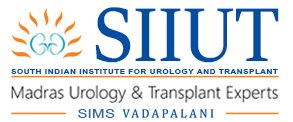Wilms’ Tumor is also known as nephroblastoma. Wilms’ tumor is a very uncommon kidney cancer that generally affects children with age groups ranging 3 to 4 and becomes less common after age 5.. Wilms’ tumor is the most common cancer of the kidneys in children. It usually occurs in just one kidney, but even though it is found sometimes in both kidneys at the same time. Improvements in the diagnosis and treatment of Wilms’ tumor have better the prognosis for children with this disease.
SYMPTOMS:
Wilms’ tumor mostly asymptomatic it won’t show any symptoms or signs of the disease. In children with Wilms’ tumor may appear healthy or they may experience these symptoms:
-
Abdominal swelling
-
An abdominal mass you can feel
-
Abdominal pain
-
Fever
-
Blood in the urine
CAUSES:
It will cause when the cells develop errors in their gene (DNA). These errors permit the cells to grow and divide without any control and to go on living when other cells may die. These accumulation of the cells will form a tumor. In Wilms’ tumor, this whole process occur in the kidney cells.
In some patients, the errors in the DNA may lead to Wilms’ tumor and they can be transmitted from parents to children. In some other patients, there is no known link between parents and children that may lead to cancer. Children who born with these abnormalities, Denys-Drash syndrome, WAGR syndrome, Beck with-Wiedemann syndrome may also the causes of Wilms tumour.
DIAGNOSIS:
The first formed symptom is usually a painless abdominal tumor that can be easily detected by the doctor. To diagnose the disease tests like blood test, ultrasound scan, computed tomography scan, urine test, MRI scan is done first. A tumor biopsy is not usually done because of the risks creating fragments of tumor tissue and seeding the stomach with malignant cells.
The treatment for a Wilms’ tumours based on the size of the tumor and whether it is spreading or it is not spread to adjacent lymph nodes. Because this kind of tumour is so uncommon it is treated in specialist centres. The main treatments include chemotherapy, surgery, radiotherapy.

